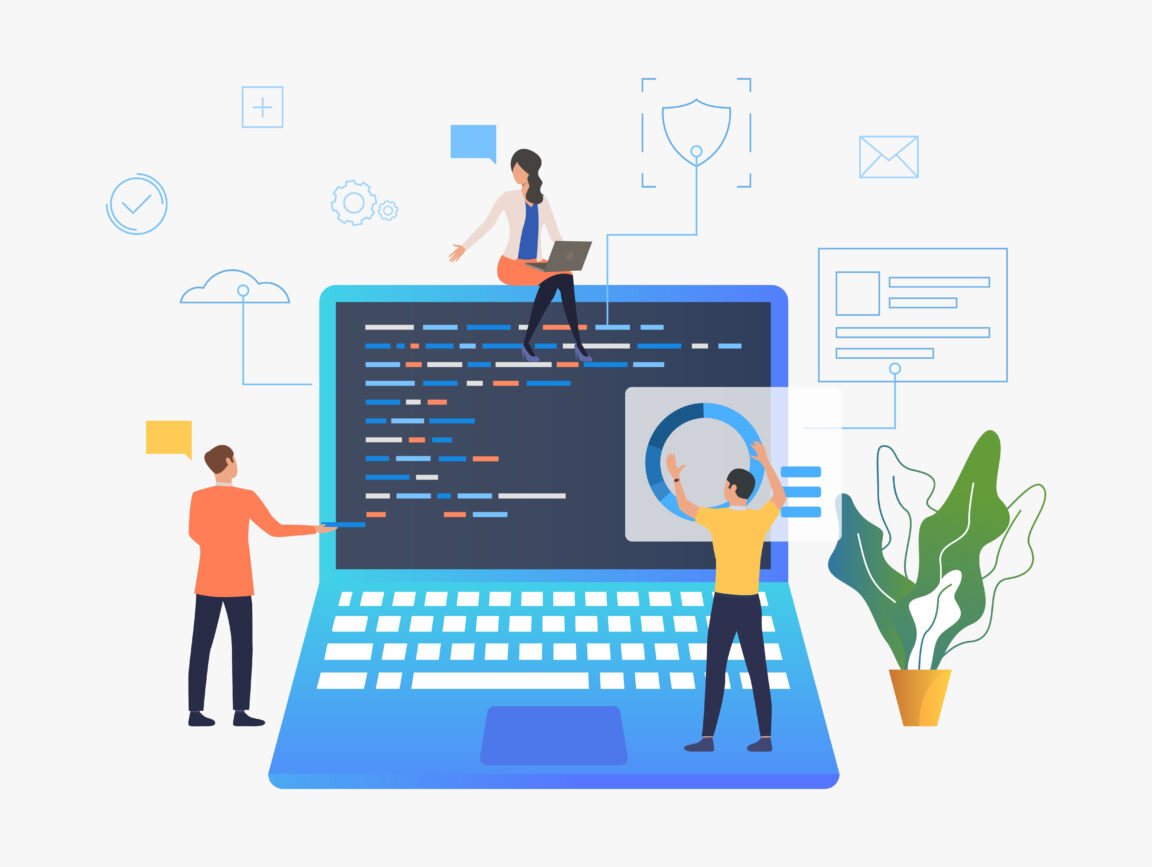The field of web development is constantly evolving, and it can be challenging to keep up with the latest technologies and trends. As we move further into the 21st century, we can expect to see even more significant changes in the world of web development. In this blog post, we will explore some of the emerging technologies and trends that are shaping the future of web development.
- Progressive Web Apps (PWAs)
Progressive web apps are a new way of building web applications that provide a native app-like experience on the web. They are designed to be fast, reliable, and engaging, and they work on any device with a web browser. PWAs are built using web technologies like HTML, CSS, and JavaScript, but they are optimized for mobile devices and can be installed on a user’s home screen just like a native app.
PWAs are gaining popularity because they offer a seamless user experience without requiring users to download an app from the app store. They also offer improved performance, as they can be cached locally on the user’s device. This means that even if the user loses their internet connection, they can still access the app.
- Voice User Interfaces (VUIs)
Voice user interfaces (VUIs) are a new way of interacting with digital devices using voice commands. VUIs are becoming increasingly popular thanks to the rise of voice assistants like Siri and Alexa. In the future, we can expect to see more websites and web applications incorporating VUIs to provide a more natural and intuitive user experience.
VUIs can be used to perform a wide range of tasks, from searching for information to controlling smart home devices. As more people become comfortable using VUIs, we can expect to see more websites and web applications incorporating this technology.
- Artificial Intelligence (AI)
Artificial intelligence (AI) is another emerging technology that is set to have a significant impact on the future of web development. AI can be used to improve the user experience by providing personalized recommendations, analyzing user behavior, and automating routine tasks.
AI can also be used to improve website security by detecting and preventing fraud and cyber attacks. As AI technology continues to evolve, we can expect to see more websites and web applications incorporating AI to provide a more intelligent and responsive user experience.
- Augmented Reality (AR)
Augmented reality (AR) is a technology that enables the superimposition of digital content onto the physical world, creating a hybrid experience where real and virtual elements coexist. AR is already being used in variety of applications, from gaming to shopping. In the future, we can expect to see more websites and web applications incorporating AR to provide a more immersive and engaging user experience.
AR can be used to provide interactive product demonstrations, allow users to try on virtual clothing, and even provide virtual tours of real-world locations. As AR technology continues to improve, we can expect to see more websites and web applications incorporating this technology to provide a more engaging and interactive user experience.
- Single Page Applications (SPAs)
Single-page applications (SPAs) are a type of web application that relies on loading a single HTML page and then dynamically updating the content based on user interactions, without requiring the page to be reloaded. SPAs are designed to provide a fast and responsive user experience, as they do not require the page to reload every time the user performs an action.
SPAs are becoming increasingly popular, as they offer many benefits over traditional multi-page web applications. They are faster and more responsive, offer a better user experience, and are easier to develop and maintain.
- Blockchain Technology
Blockchain technology is a distributed ledger technology that allows secure and transparent transactions to take place without the need for intermediaries like banks or governments. Blockchain technology is already being used in a variety of applications, from cryptocurrency to supply chain management.
In conclusion, the future of web development is bright and exciting, with many emerging technologies and trends that will shape the way we build and interact with websites and web applications. Progressive web apps, voice user interfaces, artificial intelligence, augmented reality, single-page applications, and blockchain technology are just a few examples of technologies that will have a significant impact on the future of web development.
As web developers, it is essential to stay up-to-date with the latest trends and technologies and be ready to adapt and evolve as the field continues to change. By embracing these emerging technologies and trends, we can create websites and web applications that offer a more engaging, interactive, and personalized user experience. The future of web development is exciting, and we can’t wait to see what’s next.







Comments
0 comments